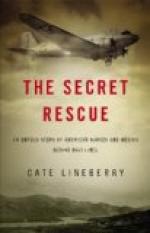“Yes, I see what you mean,” replied Neil thoughtfully. “And maybe we’d get on better if we tried again. Anyhow, Paul, you ask him down to the room some night and—and we’ll see.”
“Thanks,” said Paul gratefully. “And now let’s get busy with the funeral baked beans—I mean meats. Gee, I’ve got about as much appetite as a fly! I—I wish the game was over with!”
“So do I,” answered Neil, as with a sigh he listlessly followed his chum into the house.
CHAPTER XXI
THE “ANTIDOTE” IS ADMINISTERED
[Illustration]
High up against a fair blue sky studded with fleecy clouds streamed a banner of royal purple bearing in its center a great white E—a flare of intense color visible from afar over the topmost branches of the empty elms, and a beacon toward which the stream of spectators set their steps. In the tower of College Hall the old bell struck two o’clock, and the throngs at the gates of Erskine Field moved faster, swaying and pushing past the ticket-takers and streaming out onto the field toward the big stands already piled high with laughing, chattering humanity. Under the great flag stretched a long bank of somber grays and black splashed thickly with purple, looking from a little distance as though the big banner had dripped its dye on to the multitude beneath. Opposite, the rival tiers of crowded seats were pricked out lavishly with the rich but less brilliant brown, while at the end of the enclosure, where the throngs entered, a smaller stand flaunted the two colors in almost equal proportions.
And between stretched a smooth expanse of russet-hued turf ribbed with white lines that glared in the afternoon sunlight.
The college band, augmented for the occasion from the ranks of the village musicians, played blithely; some twelve thousand persons talked, laughed, or shouted ceaselessly; and the cheering sections were loudly contending for vocal supremacy. And suddenly on to this scene trotted a little band of men in black sweaters with purple ’E’s, nice new canvas trousers, and purple and black stockings; and just as suddenly the north stand arose and the Robinson cheers were blotted out by a mighty chorus that swept from end to end of the structure and thundered impressively across the field:
“Erskine! Erskine! Erskine! Rah-rah-rah, rah-rah-rah, rah-rah-rah! Erskine! Erskine! Erskine!”
It was repeated over and over, and might, perhaps, have been sounding yet had not the Robinson players, sturdy, brown-clad youths, ambled onto the field. Then it was Robinson’s turn to make a noise, and she made it; there’s no doubt about that.
“Rah-rah-rah! Robinson! Rah-rah-rah! Robinson! Rah-rah-rah! Robinson! Robinson! Robinson!”




